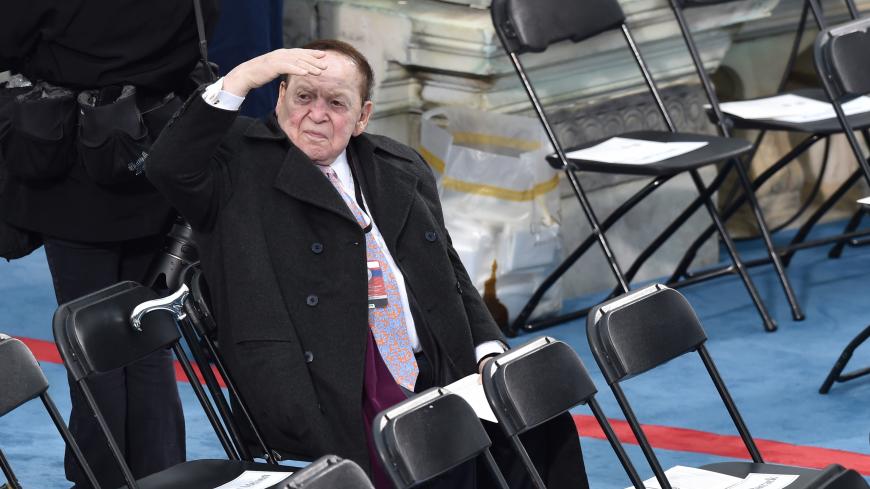Meet Karim Attiyeh, youngest Arab American billionaire of Lebanese origin
Karim Attiyeh, a Lebanese-born technologist, has been named by Forbes Middle East as the youngest billionaire of Arab origin in the United States, joining the list of the 125 richest immigrant billionaires in the US.

BEIRUT — Karim Attiyeh, a Lebanese-born technologist, has been named by Forbes Middle East as the newest billionaire of Arab origin in the United States. With an estimated fortune of $1.3 billion, he joins the list of the 125 richest immigrant billionaires in the US — highlighting the continued contributions of Lebanese figures in the global tech sector.
Attiyeh, 35, is the co-founder and chief technology officer of Ramp, a US-based fintech startup offering AI-powered tools designed to help businesses manage expenses, bill payments, procurement and travel with no‑fee corporate cards.
He achieved billionaire status after his net worth reached $1.3 billion, becoming the youngest Arab American billionaire in the US, based on Forbes’ real-time billionaire rankings as of July 14.
Lebanese-born Karim Atiyeh, co-founder of Ramp, has reached billionaire status with a $1.3 billion net worth, becoming the sixth Arab-born billionaire in the US. Here’s how he made it to this elite list.#Forbes
— Forbes Middle East (@Forbes_MENA_) July 17, 2025
For more details: 🔗 https://t.co/NGq7WIZ1e0 pic.twitter.com/OcwexADPvX
Attiyeh brings the number of billionaires with Arab roots who built their wealth in the US to six, with a combined fortune of $17.7 billion, according to Forbes.
Leading the group and at 18th place on Forbes’ list of 125 immigrant billionaires in 2025 is Jordan-born Ramzi Musallam, CEO of the private equity firm Veritas Capital. Musallam boasts an estimated net worth of $9.2 billion.
The list also includes Egyptian media mogul Haim Saban, who ranked 61st on the list with $3.1 billion, followed by hedge fund manager Marc Lasry from Morocco, whose fortune is estimated at $1.9 billion. Lasry is in 89th place.
Attiyeh is in 107th place, followed by Noubar Afeyan in 116th place with $1.2 billion. Afeyan also hails from Lebanon. Iraqi software entrepreneur David Hindawi, who has a $1 billion fortune, is in 125th place.
Who is Karim Attiyeh?
Attiyeh was born and raised in Beirut. After graduating from the College Notre-Dame de Jamhour in Beirut with a bachelor's in mathematics in 2003, he flew to the US to continue his studies at Harvard University, earning a bachelor’s degree in electrical and computer engineering in 2007 and a master’s degree in computer science in 2010.
Attiyeh then moved to New York in 2011 to kickstart his career, which began at consulting firm Oliver Wyman, doing what he describes on his LinkedIn profile as “PowerPoint and Excel” until 2014.
He then delved into the coding and development sector. In 2014, he and his Harvard classmate Eric Glyman and friend Gene Lee founded Paribus, a consumer app that provides automatic refunds for online shoppers when prices drop.
Paribus’ rapid growth led to its sale to financial services provider Capital One in 2016. The app at the time had 700,000 users. Even after its acquisition, Attiyeh continued to run Paribus until 2019.
That year, the Lebanese technologist, along with Glyman and Lee, launched the Manhattan-based Ramp startup, which quickly grew into a major player in financial technology, reaching a valuation of nearly $16 billion by 2025 and serving more than 40,000 businesses, according to its website.
As CTO, Attiyeh, who has a 10% stake in the company, leads the product and engineering teams in developing financial tools aimed at saving time and reducing wasteful spending for businesses.
Attiyeh is one of several Lebanese individuals who have made significant contributions to the tech industry in the United States and elsewhere in the world.
In 2021, Lebanese entrepreneurs Tressia Hobeika and Carl Madi co-founded Stepful, a New York-based platform that provides online health care training. Stepful was ranked first among the educational technology companies in the US and 10th globally by Time magazine’s 2025 EdTech ranking.








